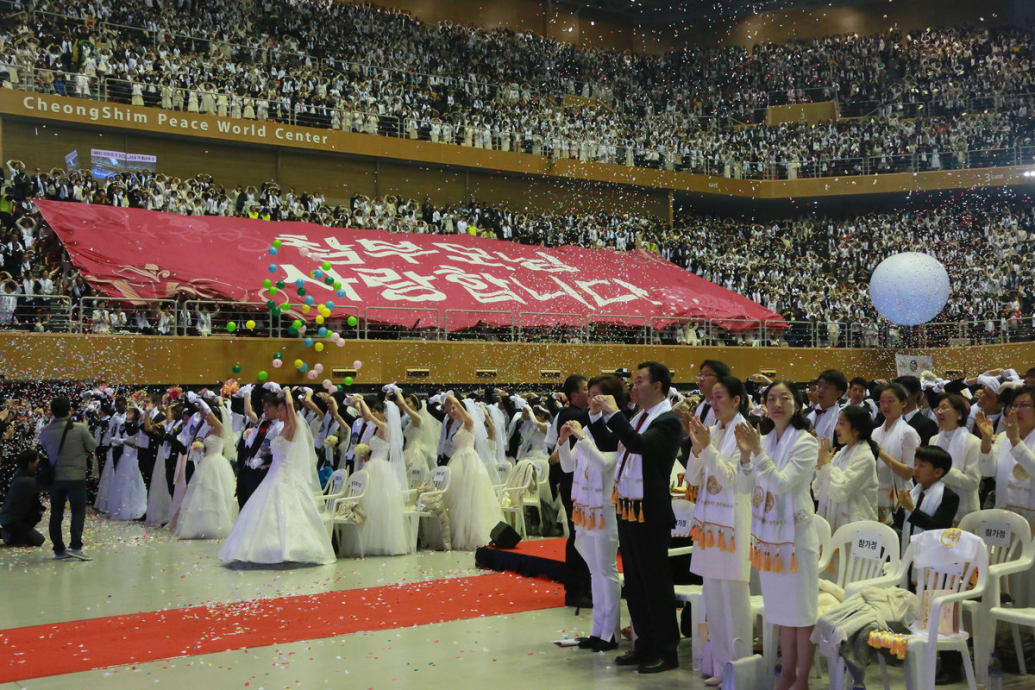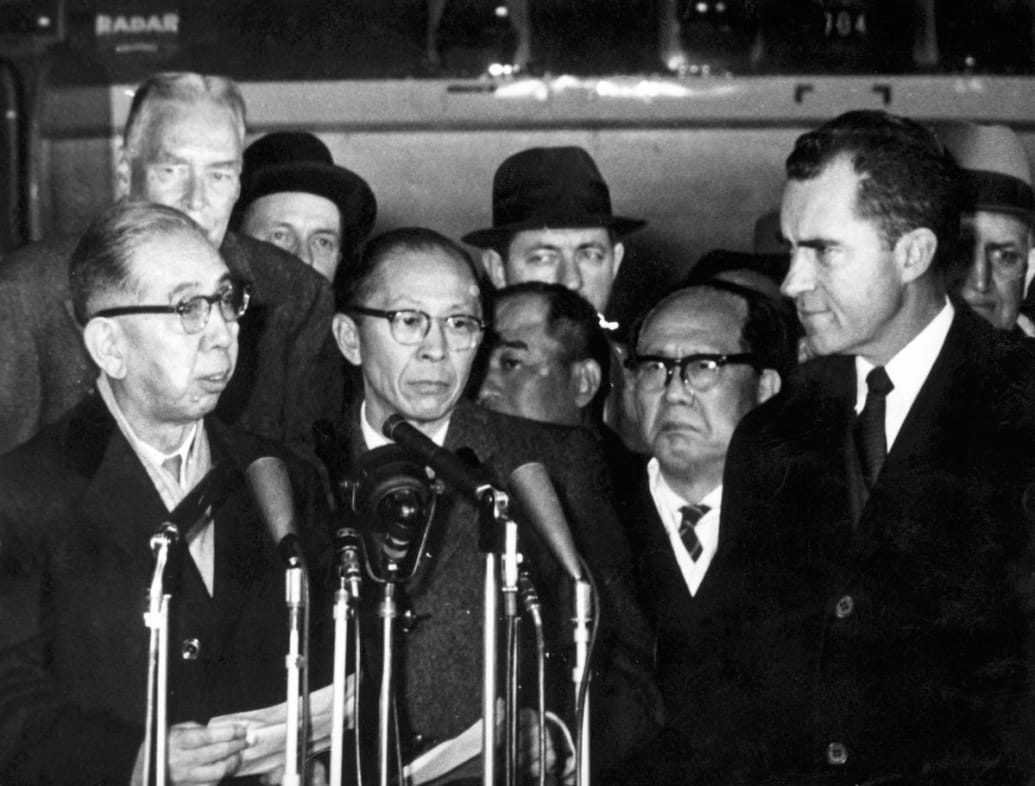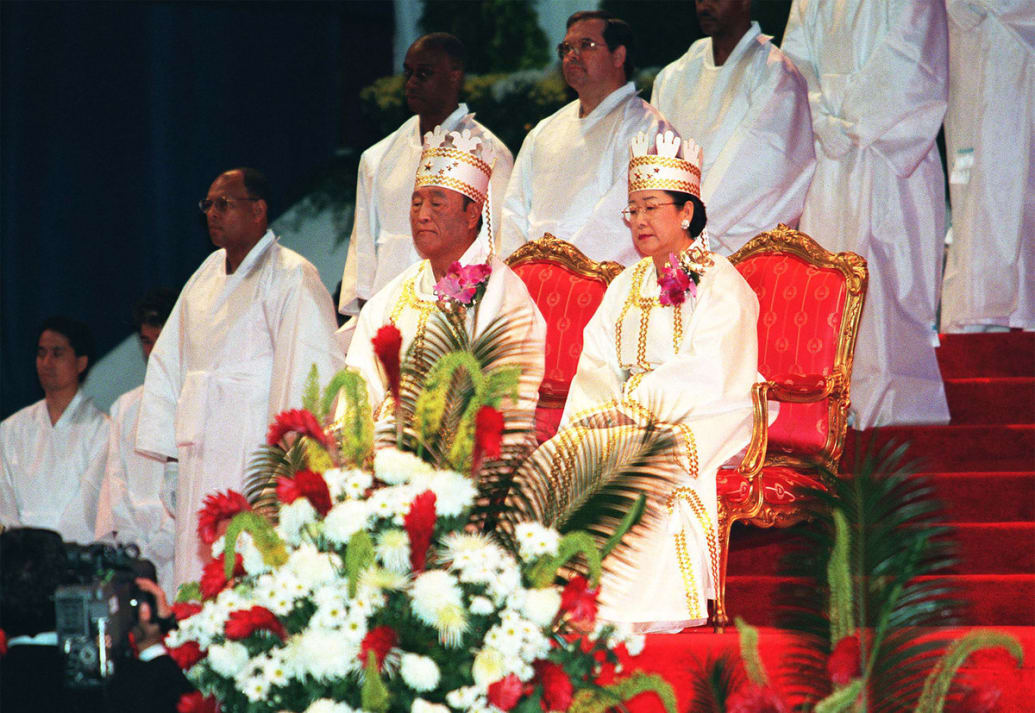DoubleClutch
Superstar
Gun violence is normal in South African ghettos. I guess the news will start reporting it more now
There’s a difference between someone getting robbed at gun point and a mass shootingGun violence is normal in South African ghettos. I guess the news will start reporting it more now


oh shyt
Bank Shot: Abe Assassin's Wild Success - SNA Japan
Bank Shot: Abe Assassin’s Wild Success
Michael PennAug 23, 2022
by in Politics

SNA (Tokyo) — Unemployed loner Tetsuya Yamagami hoped to use his homemade shotgun on Shinzo Abe not mainly to kill Japan’s longest-serving prime minister, but to take his revenge on the Unification Church, which he blamed for destroying his life and that of his family. Improbably, the assassination has become a wild political success. Yamagami’s “bank shot” strategy achieved more than he could possibly have hoped.
These are the facts, even if it is ethically uncomfortable. There is undoubtedly a great deal of moral hazard in this story. Few people want to encourage other desperate young men to fire guns at senior political leaders. The anticipation of the futility of such acts is one of the main deterrents against them. Would-be assassins often give up in the knowledge that, even should they kill their target, the results that flow from it will not be what they desired.
But because of the particular set of circumstances surrounding this case, it was different this time.
We can start with the fact that Shinzo Abe was not really loved in Japan. After a long career in hard right politics, multiple corruption scandals, and his more recent career trying to control the Kishida government from backstage, most Japanese had long had enough of him. There were many who respected him and others who feared him, but very few to whom he was a figure of genuine endearment. The Japanese people would never have wanted to see Abe die in the manner that he did, but most were long ago ready to see him retire from politics.
Next came the fact that Yamagami’s motives in killing Abe did not fit into any preexisting narratives. Had Yamagami been a leftwing activist, for example, the assassination would have been met with universal rage from conservatives and a great deal of disquiet from ordinary Japanese. Indeed, many commentators in the first weeks after Abe’s assassination anticipated that there would be a political crackdown, and that authoritarian strains in Japan’s body politic would become more pronounced.
But when people began to learn that the killer’s motive related to the Unification Church–a more-or-less unknown entity within Japanese political debates–there was at first a sense of confusion. People didn’t know what to make of it. Was the assassin just some kind of lunatic, or was there more to the story?
At first, the Japanese media refused to even name the Unification Church. Hesitantly at first, the mainstream media eventually began to investigate and unravel the story. It took them weeks to gain the confidence to report the story more fully, but with a figure of the significance of Shinzo Abe at the center of it, they couldn’t really avoid doing their jobs on this occasion.
And then something odd started to happen: As the Japanese people learned more about Tetsuya Yamagami and what he had experienced in his life, their overwhelming reaction was not a feeling of anger about the loss of the unloved Abe, but sympathy towards his assassin. They felt pity for his troubled life and for the ways in which he had been a long-term victim of the Unification Church. While few wanted to say out loud (due to the moral hazard factor) that killing Shinzo Abe may have been his only practical recourse, the fact is that more people came to sympathize with Yamagami than with Abe.
This was also because of the light being thrown–not only on the pitiable circumstances of the assassin–but also on what Abe’s previously unknown connection with the Unification Church was all about.
Drip by drip, the public learned for the first time that the ruling Liberal Democratic Party had maintained an informal political alliance with the Unification Church, and that Yamagami had correctly identified Shinzo Abe as standing at the pinnacle of the relationship as far as Japan’s government was concerned (something which generations of mainstream journalists had failed to report). In return for election support to some LDP politicians, the authorities turned a blind eye to the fleecing of tens of thousands of Japanese families through “spiritual sales,” preying mainly on Japanese women who were isolated or in grief, as was the case with Yamagami’s mother.
The political right (which many analysts at first believed would be the main political beneficiaries of Abe’s assassination) found itself on the defensive. Some of Abe’s closest aides, such as incumbent LDP policy chief Koichi Hagiuda, were found to have maintained close links with the church, as did dozens of other prominent politicians.
On what basis could they defend their alliance with a religious cult that preyed upon ordinary people?
Even more damning, at least in the eyes of Japanese nationalists, the cult in question was based in South Korea, led by South Koreans, and has teachings about Japan that are guaranteed to elicit outrage.
In short, the exposure of the LDP-Unification Church link has knocked Japan’s political right completely off balance. They don’t have a leg to stand on, even by the standards of their own ideology. The confusion in their ranks is made even worse by the fact that Abe had no successor to the rightwing cause who is able to step into the leadership role which he had carved out.
According to the conventions of establishment thinking, assassins are supposed to be deranged madmen. They are not supposed to be correct. They are notsupposed to be brilliant strategists able to predict that by killing a single, secretly compromised leader, a political “bank shot” could be performed which not only knocks out the leading accomplice, but also drops their true enemy (the Unification Church) into the side pocket.
But news media should speak the truth, even at the risk of creating a moral hazard. Let’s acknowledge what many people might whisper to their friends around the water cooler, but hesitate to say openly.
The assassination of Shinzo Abe was an improbable but wild success for the long-tortured Tetsuya Yamagami.
For breaking news, follow on Twitter @ShingetsuNews






In 2004, at a ceremony on March 23 in the Dirksen Senate Office Building, in Washington, D.C., Moon crowned himself with what was called the "Crown of Peace".[207][208] Lawmakers who attended included Mark Dayton (D-Minn.), Representatives Roscoe Bartlett (R-Md.) and Elijah Cummings (D-Md.), as well as former Representative Walter Fauntroy (D-D.C.). Key organizers of the event included George Augustus Stallings Jr., a former Roman Catholic priest who had been married by Moon, and Michael Jenkins, the president of the Unification Church of the United States at that time.[207] Rep. Danny K. Davis played an active role in the ceremony.[208]
In 2020 former Secretary General of the United Nations Ban Ki-moon received the Sunhak Peace Prize, which is sponsored by the Unification Church, and an award of US$1,000,000.[214][215] In 2021, Donald Trump and Shinzo Abe gave speeches at the Rally of Hope event hosted by an affiliate of the Unification Church.[216][217][218][219] The Unification Church has ties with Kishi Nobusuke, Abe's grandfather and former prime minister, and Abe Shintaro, Abe's father and former foreign minister.[220]
In 2000, Moon was criticized, including by some members of his church, for his support of controversial Nation of Islam leader Louis Farrakhan's Million Family March.[57]
Moon was also criticized for his relationship with controversial Jewish scholar Richard L. Rubenstein, an advocate of the "death of God theology" of the 1960s.[305] Rubenstein was a defender of the Unification Church and served on its advisory council,[306] as well as on the board of directors of the church-owned Washington Times newspaper.[307] In the 1990s, he served as president of the University of Bridgeport, which was then affiliated with the church.[308]
In 1995 the WFWP generated controversy when it indirectly contributed $3.5 million to help Liberty University, which at that time was in financial difficulty. This was reported in the United States news media as an example of closer relationships between the Unification movement and conservative Christian congregations.[380] That same year former United States president George H. W. Bush spoke at several WFWP meetings in Japan,[381][382] and at a related conference in Washington, D.C. There he was quoted by The New York Times as saying: "If as president I could have done one thing to have helped the country more it would have been to do a better job in finding a way, either through speaking out or through raising a moral standard, to strengthen the American family."[383]
In 1999 the WFWP sponsored a conference in Malaysia in which religious and government leaders spoke on the need to strengthen education and support families, as well as the need for peace and understanding between ethnic and racial groups in the nations.[388] In 2009 it co-sponsored, along with the Unification movement affiliated organization the Universal Peace Federation and the government of Taiwan, a conference in Taipei calling for Taiwan's greater participation in world affairs independent of the People's Republic of China. Taiwan's president, Ma Ying-jeou, spoke at the event.[389]
TheConservatives.com, a former political website in partnership with the Heritage Foundation.[448]
Master Marine, a shipbuilding and fishing company in Alabama;[471][472] International Seafood of Kodiak, Alaska;[473][474] and True World Foods, which runs a major portion of the sushi trade in the US.[475][476] In 2011 Master Marine opened a factory in Las Vegas, Nevada, to manufacture a 27-foot pleasure boat designed by Moon.[477][478]
From 2000 until his death in 2012, Moon promoted the creation of an interreligious council at the United Nations as a check and balance to its political-only structure.[495][496] Since then King Abdullah of Saudi Arabia and King Juan Carlos I of Spain hosted officially a program to promote the proposal.[497]
George Bush Presidential Library. In June 2006 the Houston Chronicle reported that in 2004 Moon's Washington Times Foundation gave a $1 million donation to the George Bush Presidential Library.[526]

Im saying… it’s bizarre how the whole thing just came and went.Yeah folk been speculating that, that church shyt and the connection's Abe's party got to it.. are the reasons dude's death got swept under the rug so fast
Just caught up after The Economist touched on it in a podcast.
Reading the story, he might have one of the most successful assassinations I've heard of north of a dictatorship.
It's a very scandalous story... it's like if the crazy cult vibes of Q had the slimy bribes of Scientology

Can't wait until Falun Gong got exposed too, but then @℃ertifed might be sad because he love to cape for those fukkers when he could attack China with it.Just caught up after The Economist touched on it in a podcast.
Reading the story, he might have one of the most successful assassinations I've heard of north of a dictatorship.
It's a very scandalous story... it's like if the crazy cult vibes of Q had the slimy bribes of Scientology
 But but but muh organ harvesting stories are real
But but but muh organ harvesting stories are realwhat?Can't wait until Falun Gong got exposed too, but then @℃ertifed might be sad because he love to cape for those fukkers when he could attack China with it.
But but but muh organ harvesting stories are real